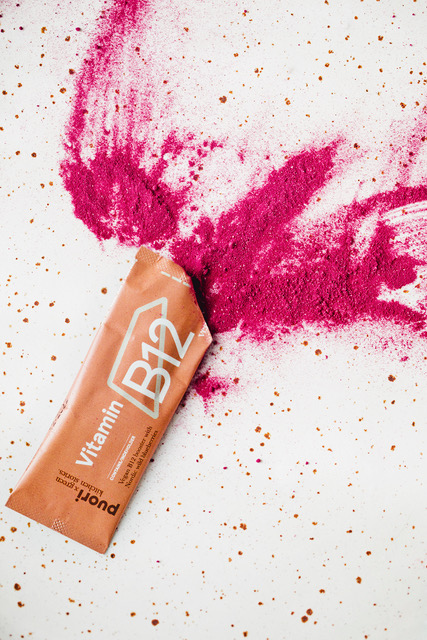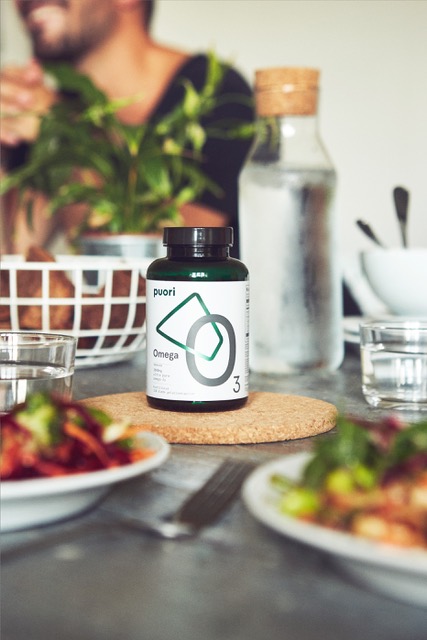Why Vitamins Are Important
Vitamins and minerals are necessary for your well-being. Your body needs a certain amount of each of the essential nutrients to function optimally.
The common catch-cry of the fitness world is that vitamins and minerals are adequately available from our food. It's hard to appreciate the credibility of this advice, when it is delivered from a profession that receives negligible nutrition training.
As a passionate performance & rehabilitation coach I'm the first to recommend a diet full of whole, fresh and organic food but I've realised that it's just not possible to receive all of our required nutrients from the food we eat. The inconvenient reality is that food isn't what it used to be.
.jpg)
For example, the average apple on our supermarket shelves has been sprayed 8 times with pesticides, watercress now has about 88% of the Iron it used to have in the early 60's, and the average orange today has 60% less vitamin C than it did just 50 years ago. The marvel of modern agriculture has robbed our soils of essential minerals and consequently, our plants are deficient in these nutrients also. It would be nice to think that we could meet our daily requirements from nutrition alone, but sadly this is just not the case.
Every day the body needs vitamins and minerals to run the cells, we need essential fatty acids to coat the cell membranes and antioxidants to minimise the harmful effects of free radicals.
TYPES OF SUPPLEMENTS
There are many different types of supplements, including:
- traditional vitamins and minerals, such as “letter” vitamins
- other essential nutrients found in foods, such as omega-3s
- antioxidant compounds like phytonutrients and amino acids
- non-food compounds found in the body, such as melatonin
- herbs and adaptogens, such as ashwagandha.


Of all the supplements, the most common types are vitamin and mineral supplements. That’s largely because vitamins and minerals are considered essential micronutrients the body needs in order to function properly.
DO I NEED SUPPLEMENTS?
Most of us who are trying to lead a healthy, fulfilled life are opting to eat as best we can however the majority of people fail to eat even the bare minimum required fruit and vegetable servings. We require at least 7-10 servings of fruit and veg daily of which 5 need to be green leafy veg.
Our bodies also require 1g of Omega 3 EFA's per % body fat and as we don’t produce this, it has to come from food. Oily fish, seeds, nuts, oils and I will eat my hat if anyone can get this from food alone.
Since your diet may lack important micronutrients, the purpose of taking supplements is to better support your health. They can help meet your daily recommendations or provide a more concentrated amount of nutrients than you’re able to get through food alone.
Natural or Synthetic?
Supplements may be natural food derivatives or laboratory manufactured. The majority of vitamins that are sold in pharmacies, and supermarkets are synthetic vitamins, which are only isolated portions of the vitamins that occur naturally in food. Vitamins and minerals in nature do not exist as single components that act on their own, they are made up of several different components – enzymes, co-enzymes, and co-factors– that must work together to produce their intended effects. In this context natural supplements are far superior to their synthetic counterparts however this is not the end of the story.
In considering synthetic or natural supplements you must look into why you are supplementing in the first place. If you are looking to take therapeutic doses for a particular illness then it may be necessary to take synthetic supplements to achieve high enough doses for the program to have effect. There is much published work supporting this approach and in this context synthetic supplements play their part. If you are generally healthy and are looking to supplement your diet on a day to day basis then natural supplements are your best option.
FINAL THOUGHTS
Supplements don’t replace the importance of a well-balanced diet that includes fruit, vegetables, whole grains, lean protein, and healthy fats, but helps to fill the gaps in your diet and help your body run more optimally.
In addition, there are certain diets and conditions that can result in a vitamin deficiency:
- If you are on a vegan diet
- If you have allergies or food intolerances
- If you have certain conditions like IBS
Vegan’s often need a Vitamin B12 supplement and in winter months the NHS recommends that most people take a Vitamin D3 supplement.
Symptoms of vitamin deficiency can include:
- Feeling tired
- Low energy or mood
- Weakness
- Or increased susceptibility to illness
Although food is the ideal way to improve micronutrient levels, until we can replenish our soils and eat produce freshly picked in season, supplementation is necessary to atone for the shameful lack in our foods.
Find out more
https://www.ebay.co.uk/str/hgssupplements
TestimonialsWhat our clients say
"Home Gym Solutions have worked tirelessly to ensure the project was brought in on time and budget. The final product speaks for itself. We are amazed at the transformation and has had a positive impact on the whole family."
"I trusted Matt and the team at Home Gym Solutions to convert half of our garage into a functional training space that the whole family could use. The end result has exceeded all expectations and the personal walk-through demo after completion was an unexpected bonus and motivated each of us to get in and use this amazing home gym."
The team at HGS were a pleasure to work with right from the inception of the project and clearly understood our vision. They were on hand to provide a completely bespoke service and come highly recommended."
"Matt and the team at HGS provided us with a very professional service based off our specific needs and worked with us to ensure we maximized the use our limited floor space. They went over and beyond to offer several different solutions. The whole process has been hassle free and the transformation from dis-used space, into a fully equipped gym is simply incredible."
"From initial consultation to personal induction, the whole process has been professional beyond words. We had no idea what we really wanted or needed, but Matt and the team took time to listen and offered several different options from selecting the right flooring, equipment to suit our training needs, space saving storage options, ventilation, sound. Their knowledge and creativity was astonishing. They were reliable, easy to deal with and nothing was too much trouble. They came in bang on budget and provided a home gym that exceeded all expectations – professional beyond measure."